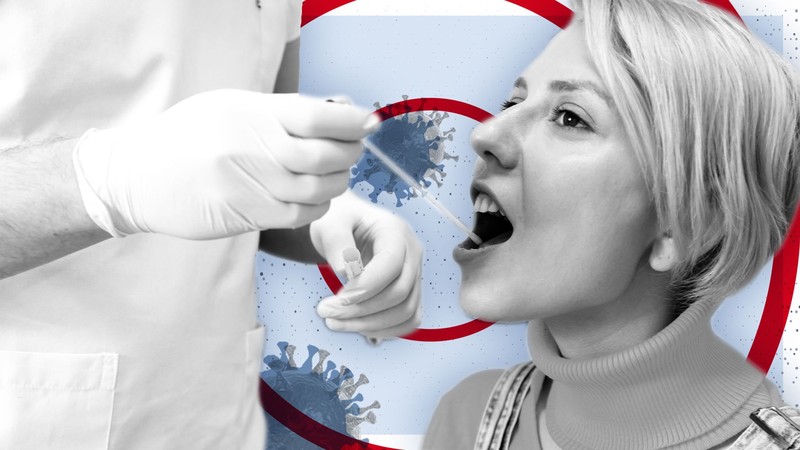
There are two main types of Covid-19 tests available and used by the health authorities worldwide to detect the virus. First is a molecular test which is the most accurate but usually is performed by lab technicians. The other one is an antigen test which is fast and inexpensive but less accurate. Both tests require nasal or throat swab samples.
1) Molecular test or reverse transcription polymerase chain reaction (RT-PCR)
This diagnostic test (molecular) to show if a person has an active infection and the test has typically high sensitivity rates, thus the sample has to be carefully prepared to avoid contamination.
RT-PCR is considered to be the gold standard in diagnosing Covid-19 virus due to high sensitivity (accuracy) rates. It is a molecular test that is able to detect the virus’s genetic material in the nasal or throat swab sample taken from an individual. By detecting virus genetic material which will be present in the body before antibodies form or before the symptoms of the disease are present, this test can tell whether or not someone has the virus earlier.
A molecular test using a nasal swab is usually the best option because it will have fewer false negative results compared to other diagnostic tests or samples from throat swabs or saliva.
Polymerase chain reaction (PCR) test which has a high rate of accuracy is usually performed in large certified labs and requires skilled lab workers. Depending on the lab capacity and logistics, results may be ready within hours, but often take at least a day or two especially if the sample needs to be shipped across distances
2) Antigen test or antigen rapid test kit (RTK-Ag)
The RTK-Ag test, on the other hand, is often called a “rapid test” because the turnaround time is much quicker than RT-PCR test. It can generate results within 15 to 30 minutes and it is also cheaper to produce.
As a result, an antigen test is being used to screen large numbers of people but its accuracy is lower than the RT-PCR test and produces false negative results more often compared to a molecular test. This is why the antigen test is not favored by the FDA as a single test for active infection.
In order to obtain test results within a shorter time in circumstances where molecular testing is not available, the Health Ministry uses RTK-AG as an alternative to the RT-PCR.
This test works by identifying protein fragments (antigens) from the virus, as opposed to the RT-PCR test which detects the virus’s genetic material.
3) Antibody test
Another Covid-19 test is the antibody test or also called serologic testing, which unlike the RT-PCR and RTK-Ag tests, is detected through a blood sample. A sample of blood is taken by pricking the finger or drawing of blood and the results can be obtained within a few days.
An antibody test can show if a person has previously been infected with the COVID-19 virus. Thus, the antibody test is not suitable to be used to detect active Covid-19 infections as it can only show that a person has been (or never been) infected by the virus in the past.
These blood tests pick up on antibodies that the body’s immune system has produced in response to the infection. While a serologic test cannot tell if a person has an infection now but it can accurately identify past infection.
An antibody test if having too early can lead to false negative results. That’s because according to the US Centers for Disease Control and Prevention, it takes a week or two after infection for a person’s body immune system to produce antibodies.
Along with the tests now the Covid vaccines are also available. One must take the vaccine shot to prevent oneself from Covid-19. The WHO guidelines says if one has been infected before. He/she should wait for 3 months to get the vaccine. By then staying at home and wearing mask are the only options to be safe.

